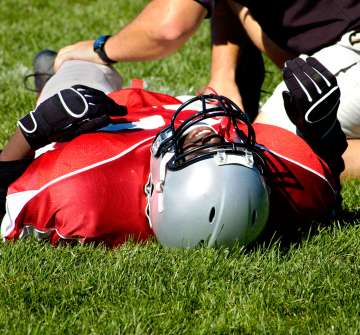Orthopedic Trauma
Our orthopedic trauma surgeons offer expert emergency care for severe injuries affecting the bones, joints and nerves.

Why Choose UCLA Health for Orthopedic Trauma Care
When you have a severe, emergency musculoskeletal injury, you want the very best care. At UCLA Health, you have access to 24-hour state-of-the-art treatment for all orthopedic trauma-related emergencies.
Our orthopedic trauma service was established in 1978 to provide dedicated support to UCLA Health’s Level 1 trauma center. Since then, we have provided the full spectrum of surgical services, including reconstructive surgery, fracture care and deformity correction.
You get care from a team fueled by research. In addition to using new and promising surgical approaches, we prioritize developing nonsurgical treatments that keep you out of the operating room and improve your outcome. You get accessible, compassionate, high-quality care that puts your needs and goals first.
Highlights of our service include:
Renowned expertise: Your treatment is in the hands of surgeons with an international reputation in orthopedic trauma surgery, especially in reconstructive procedures. We specialize in correcting previously failed surgeries.
Coordinated, team-based care: You have access to multiple specialists for comprehensive care. In addition to orthopedic trauma surgery, your treatment may include the expertise of general surgeons, hand surgeons, spine surgeons and neurosurgeons. Patients from community hospitals are transferred and transported here 24 hours a day, seven days a week, for our expert care.
Research-based approaches: Our surgeons follow AO principles of fracture management. AO Trauma is a global organization that sets the standard for orthopedic trauma care. These principles outline the best-in-class approaches to treating broken bones with surgery.
Techniques to optimize recovery: Your surgical care involves minimally invasive approaches whenever possible. These techniques maximize outcomes, leading to quicker recovery, less pain and a lower chance of infection.
Orthopedic Trauma Injuries We Treat
Our orthopedic trauma team treats all types of complex fractures and bone deformities from head to toe. We specialize in:
- Axial skeletal fractures: These bone breaks occur in the head, face, neck or back. These injuries are often severe and may also lead to brain, spine or nerve damage.
- Complex polytrauma: Polytrauma means that a person has two or more severe injuries affecting different organs or body parts. It could include orthopedic injuries, nerve damage, brain injuries, burns, spinal cord injuries and more.
- Extremity nonunion and malunion: Nonunion and malunion refer to improper healing after a fracture. In nonunion, the bones fail to heal after an extended period. In malunion, the bones may heal in a deformed position.
- Pelvic and acetabular fractures: These bone breaks affect the pelvic bones or the ball-and-socket joint of the hip (acetabulum). They most commonly occur because of a high-impact trauma, such as a car accident.
- Post-traumatic deformities: Deformities refer to any disfigurement or distortion that arises from an injury. A deformity could occur because of the injury itself, or it could develop when bones don’t heal correctly.
Orthopedic Trauma Surgeries We Offer
Our surgeons provide expert emergency orthopedic care. We perform a full range of complex and advanced surgeries, including:
- Distal femoral osteotomy: Surgically fracturing and realigning the knee to correct a malunion
- Fracture fixation: Resetting and stabilizing broken bones to promote healing and restore function
- Joint replacement: Removing all or a portion of a damaged joint and replacing it with artificial parts
- Ligament reconstruction: Repairing or replacing damaged ligaments, bands of tissue that connect bones and support joints
- Limb reconstruction: Restoring the function, length and shape of an arm or leg by replacing, repositioning or stabilizing bones and joints
- Limb salvage: Reconstructing damaged bone with prosthetic parts, bone grafts or both to avoid amputation
- Tendon reconstruction: Repairing or replacing damaged tendons, the connective tissues that attach muscle to bone
Contact Us
Call 310-319-1234 to reach an orthopedic trauma expert.




